I was born in Frankfurt, Germany, but I lived in Stuttgart for a long time. My mum is still living there. I still remember, I had two big things I wanted to achieve before I turned 10. One was to have a dog and one was to learn horse riding.
Of course, both are quite kind of pricey things, so my dad gave me the choice. At that point I thought, well, maybe I’ll go for the horse riding. They paid for riding lessons for me, I was very lucky.
After school, I did a degree in social work. I met Tim, my now husband, in 1995 in Ireland. I made up my mind, this was where I was going to live.
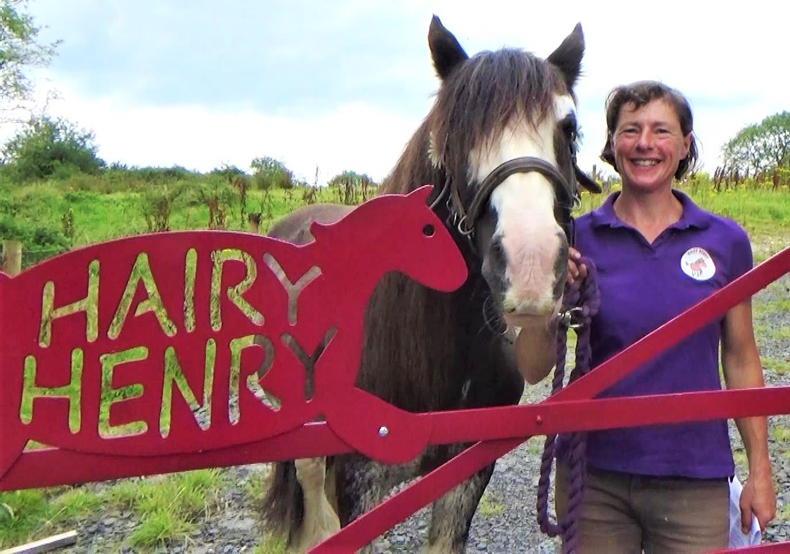
Sandra Schmid with Hairy Henry the therapy horse.
I had travelled Ireland the year before I met Tim. I was more in Clare, Donegal, Dublin. All that was fantastic, it triggered my wanting to come back the next year. In that year, 1995, I came back to west Cork and I thought, oh this is the place, the best place in Ireland.
We live 5km outside Bantry. We moved here to the farm in 2005. We saved up for a long time. It was Celtic Tiger times, the worst time to look for land, really expensive. The upside was it was really easy to get a mortgage – people were throwing money around the place.
Tim, my husband, grew up on a farm in Wales for some of his childhood. So he has a farming background and was happy to get back out on the land.
I worked previously for the HSE. There was a lot of sitting down with children in rooms. I always had an interest in finding a different way of working with children and families. I had an interest in using horses therapeutically. I did a few courses and I did a big qualification up in Wicklow. That’s when I started out, when I had that qualification under my belt.
Animal therapy
In 2013, I set up Hairy Henry Care Farm. I use equine therapy and other animal therapy to work with adults and children. Sometimes that’s riding the horses, sometimes it’s just being around the animals.
In the beginning, it revolved around the horses. More and more I thought that I was limiting myself, because not everybody is as completely passionate about horses as I am. They are also interested in other animals.
So slowly, I started to use the other animals more in sessions. Now it’s very much what the individual needs, really. If someone needs quiet time cuddling the rabbits, then that’s what we do in the session.
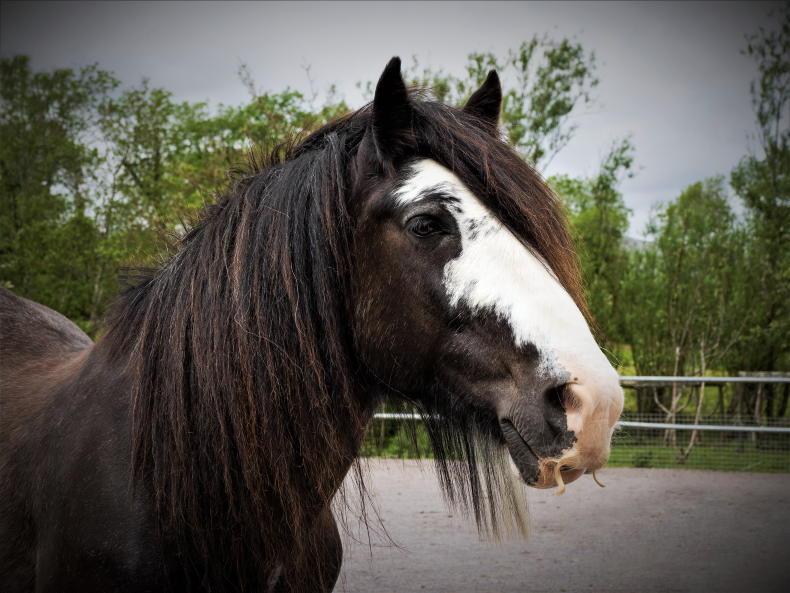
Hairy Henry, the therapy horse.
We have three horses, a little pony, three miniature donkeys, a small number of sheep, dogs, rabbits, guinea pigs, geese, chicken and ducks.
We are open to everybody, regardless of their ability level. The majority of people who would be referred here are on the autism spectrum, but we see service users from the mental health sector and people with Down Syndrome.
Sometimes too, children are just having a hard time in school or in big groups, because of their personality. They just need a nice quiet space that boosts their confidence.
A lot of my children and adults are really into outdoors, but it just gets tricky in winter, when it’s not just rainy, but cold and often windy. A lot of the people who come here would be quite vulnerable, so it’s tricky then to continue for quite a few of them into the winter.
So, we thought we’d try to raise enough money to build a barn. Nothing fancy, just big enough to sit on the pony, ride around and do a bit of animal care. Altogether, it’ll cost €100,000. At the moment, we’ve raised €20,000, between donations and my own funds. We’re applying for some grants and looking for donations.
Patient and calm
Hairy Henry is one of our therapy horses. He’s one of the founding members, in terms of the four-legged team members here. He’s been with us from the start and he brings a lot of joy to children and adults alike.
Some animals are more suited to therapy work than others. Whenever we recognise that an animal isn’t suited and it’s just not their thing, we don’t force it on them.
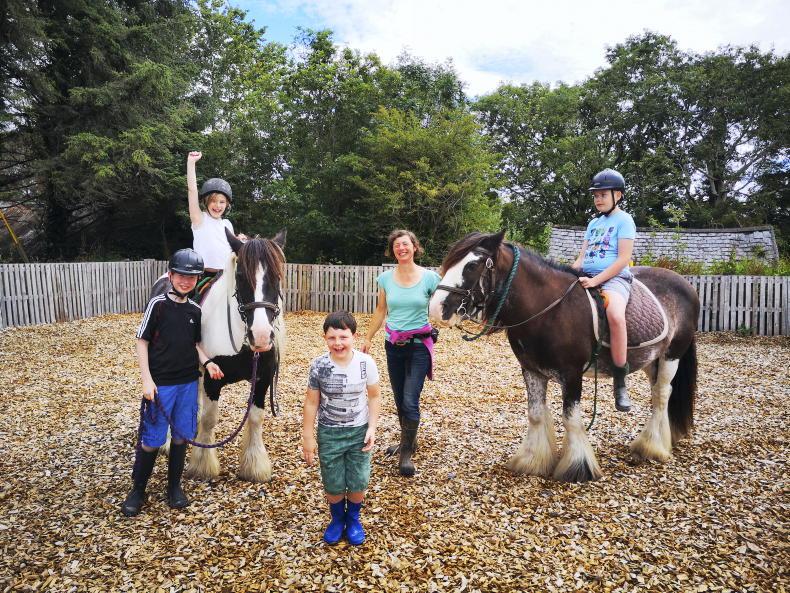
Sandra Schmid with some of her clients.
It’s important for the animals to understand that they have to be patient, even more than calm, and be ever so forgiving. We have a lot of people coming with sensory issues – they might get upset, there might be loud noises or sudden movements. The animals have to be used to that.
You see it especially in the horses and the dogs, they are really extroverted about their interest in people. It’s great for the children when they come, to see that happy dog greeting them.
Sometimes when they go to school, nobody would greet them in such a way, because maybe other children don’t know how to relate to them because maybe they are a bit different. So it’s a great booster for those children.
Read more
My Country Living: ‘It’s amazing how the generations are so different’
Meet the minor footballer sponsoring his team's jerseys
I was born in Frankfurt, Germany, but I lived in Stuttgart for a long time. My mum is still living there. I still remember, I had two big things I wanted to achieve before I turned 10. One was to have a dog and one was to learn horse riding.
Of course, both are quite kind of pricey things, so my dad gave me the choice. At that point I thought, well, maybe I’ll go for the horse riding. They paid for riding lessons for me, I was very lucky.
After school, I did a degree in social work. I met Tim, my now husband, in 1995 in Ireland. I made up my mind, this was where I was going to live.

Sandra Schmid with Hairy Henry the therapy horse.
I had travelled Ireland the year before I met Tim. I was more in Clare, Donegal, Dublin. All that was fantastic, it triggered my wanting to come back the next year. In that year, 1995, I came back to west Cork and I thought, oh this is the place, the best place in Ireland.
We live 5km outside Bantry. We moved here to the farm in 2005. We saved up for a long time. It was Celtic Tiger times, the worst time to look for land, really expensive. The upside was it was really easy to get a mortgage – people were throwing money around the place.
Tim, my husband, grew up on a farm in Wales for some of his childhood. So he has a farming background and was happy to get back out on the land.
I worked previously for the HSE. There was a lot of sitting down with children in rooms. I always had an interest in finding a different way of working with children and families. I had an interest in using horses therapeutically. I did a few courses and I did a big qualification up in Wicklow. That’s when I started out, when I had that qualification under my belt.
Animal therapy
In 2013, I set up Hairy Henry Care Farm. I use equine therapy and other animal therapy to work with adults and children. Sometimes that’s riding the horses, sometimes it’s just being around the animals.
In the beginning, it revolved around the horses. More and more I thought that I was limiting myself, because not everybody is as completely passionate about horses as I am. They are also interested in other animals.
So slowly, I started to use the other animals more in sessions. Now it’s very much what the individual needs, really. If someone needs quiet time cuddling the rabbits, then that’s what we do in the session.

Hairy Henry, the therapy horse.
We have three horses, a little pony, three miniature donkeys, a small number of sheep, dogs, rabbits, guinea pigs, geese, chicken and ducks.
We are open to everybody, regardless of their ability level. The majority of people who would be referred here are on the autism spectrum, but we see service users from the mental health sector and people with Down Syndrome.
Sometimes too, children are just having a hard time in school or in big groups, because of their personality. They just need a nice quiet space that boosts their confidence.
A lot of my children and adults are really into outdoors, but it just gets tricky in winter, when it’s not just rainy, but cold and often windy. A lot of the people who come here would be quite vulnerable, so it’s tricky then to continue for quite a few of them into the winter.
So, we thought we’d try to raise enough money to build a barn. Nothing fancy, just big enough to sit on the pony, ride around and do a bit of animal care. Altogether, it’ll cost €100,000. At the moment, we’ve raised €20,000, between donations and my own funds. We’re applying for some grants and looking for donations.
Patient and calm
Hairy Henry is one of our therapy horses. He’s one of the founding members, in terms of the four-legged team members here. He’s been with us from the start and he brings a lot of joy to children and adults alike.
Some animals are more suited to therapy work than others. Whenever we recognise that an animal isn’t suited and it’s just not their thing, we don’t force it on them.

Sandra Schmid with some of her clients.
It’s important for the animals to understand that they have to be patient, even more than calm, and be ever so forgiving. We have a lot of people coming with sensory issues – they might get upset, there might be loud noises or sudden movements. The animals have to be used to that.
You see it especially in the horses and the dogs, they are really extroverted about their interest in people. It’s great for the children when they come, to see that happy dog greeting them.
Sometimes when they go to school, nobody would greet them in such a way, because maybe other children don’t know how to relate to them because maybe they are a bit different. So it’s a great booster for those children.
Read more
My Country Living: ‘It’s amazing how the generations are so different’
Meet the minor footballer sponsoring his team's jerseys







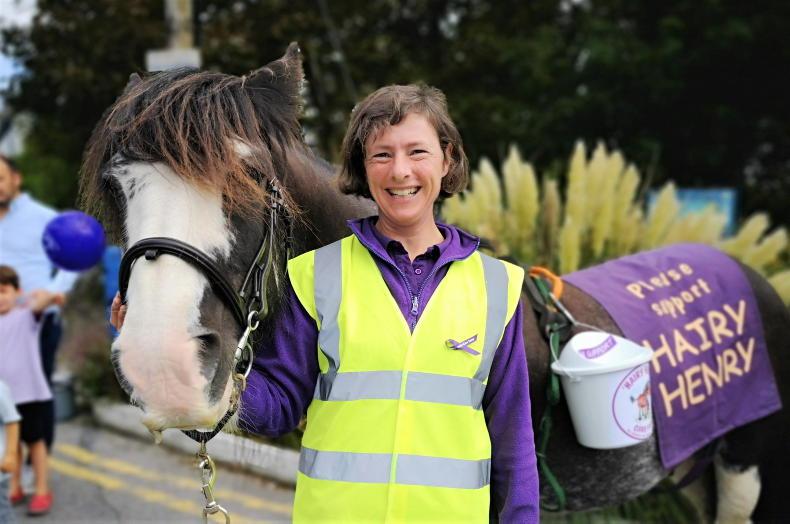
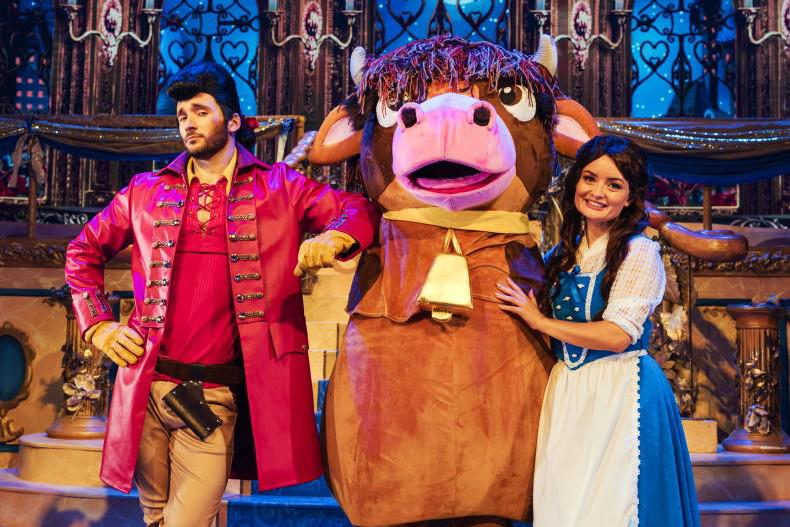
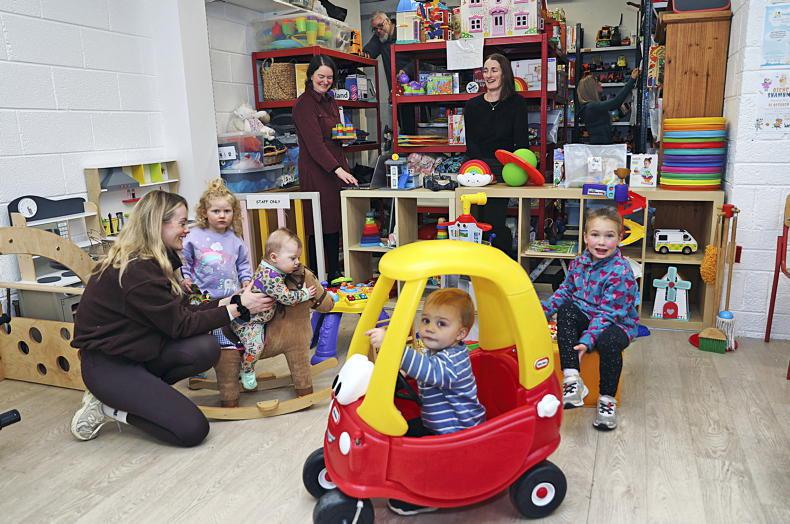
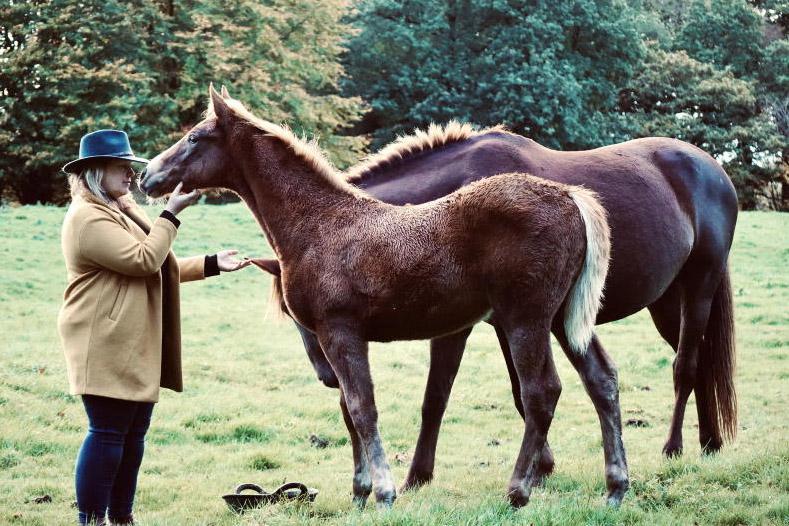
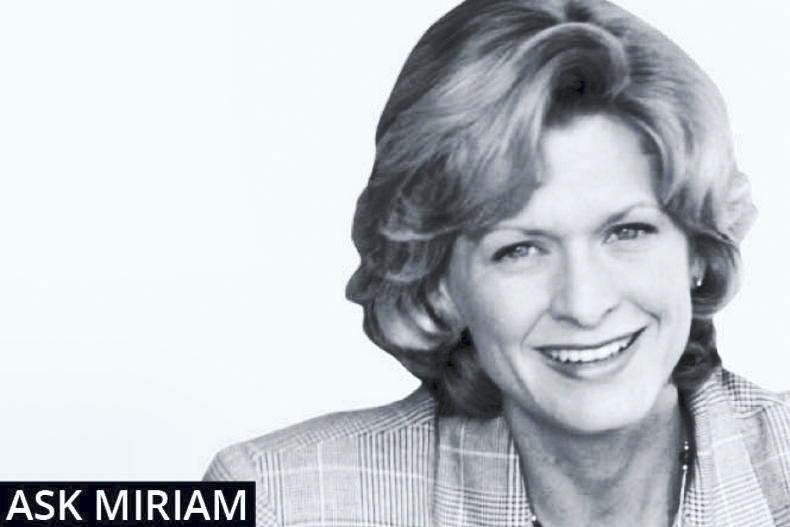
SHARING OPTIONS